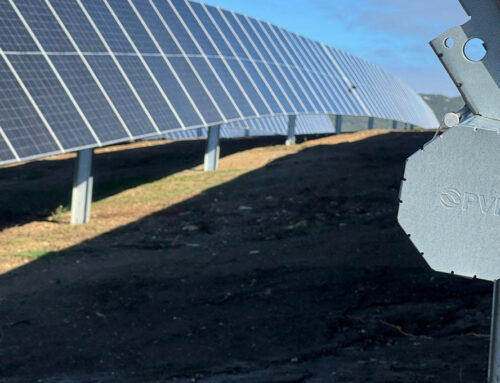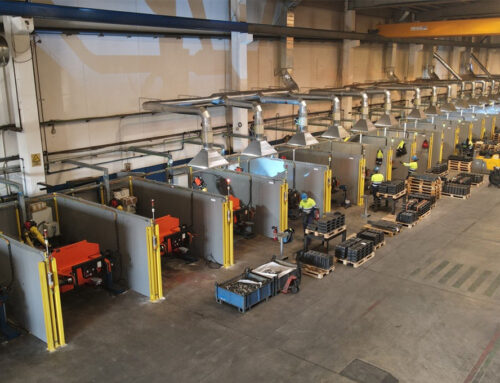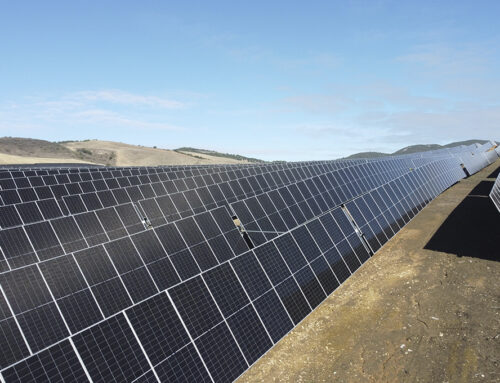The Economic Impact of Locally Manufactured Solar Trackers
20/05/2025
As the world increasingly shifts toward renewable energy to fight climate change and secure energy independence, local PV hardware manufacturing emerges as a powerful strategy. At the core of this transition is the essential hardware for photovoltaic (PV) systems, including solar trackers and mounting structures. Yet solar energy provides more than just environmental benefits, it also offers significant economic value, particularly when the hardware is manufactured locally instead of being imported.
How Local PV Hardware Manufacturing Boosts Economies Through Job Creation
One of the most immediate benefits of establishing local PV hardware manufacturing facilities is job creation. These factories require a wide range of professionals—engineers, technicians, assembly workers, quality inspectors, and administrative staff. As a result, they generate direct employment opportunities within the facility.
In addition, local manufacturing fuels indirect job growth across supporting sectors such as transportation, raw material supply, and maintenance services. These roles contribute to broader economic activity, since local workers spend their wages in nearby communities, strengthening small businesses and expanding the tax base.
Furthermore, local production boosts national economic output (GDP) and promotes economic diversification, helping reduce dependency on a single sector or foreign imports. At PVH, we’re proud to report that over 40% of our workforce at our Saudi factory consists of local employees.
Strengthening Supply Chains Through Local PV Hardware Production
Overdependence on imported components can leave solar projects vulnerable to risks such as shipping delays, geopolitical tensions, and fluctuating import costs. By investing in local PV hardware manufacturing, countries can significantly mitigate these challenges.
Producing hardware locally results in shorter delivery times, helping solar projects stay on schedule and within budget. Moreover, it lowers transportation costs and reduces carbon emissions associated with long-distance logistics.
Equally important, local manufacturing fosters the development of a domestic supply chain. This encourages the emergence of regional suppliers for materials and components, creating a more self-sufficient and resilient industrial ecosystem. As companies collaborate and adapt technology to meet specific market needs, these synergies often lead to innovation.
Case Study: Local Manufacturing Impact by PV Hardware in Saudi Arabia
PV Hardware’s expansion into Saudi Arabia illustrates the power of local PV hardware manufacturing to drive both energy and economic progress. As a global leader in solar tracking systems, PVH established PV Hardware Middle East, going beyond symbolic presence by building two state-of-the-art factories in Jeddah.
With a combined annual production capacity of 12GW, these facilities now manufacture mounting structures and advanced trackers proudly bearing the “Made in Saudi Arabia” label.
Importantly, this investment has created high-quality employment for Saudi citizens, enabling them to work in the growing renewable energy sector without leaving their country. This local impact has been formally recognized by the Saudi Local Content and Government Procurement Authority (LCGPA), which awarded PV Hardware Middle East the Local Content Certificate (LCC).
Receiving this certification is no small feat. It reflects a rigorous evaluation of a company’s contribution to the national economy through local sourcing, investment, and employment. PVH earned the highest Local Content Score among all solar tracker manufacturers in the Kingdom, reaching 35%, a groundbreaking milestone that made PVH the first solar tracker company to earn this distinction in Saudi Arabia.
Notably, 40% of our workforce in Saudi Arabia is made up of Saudi nationals. This achievement supports Vision 2030 and underscores PVH’s commitment to local talent development and community well-being.
Beyond job creation, PVH is also helping build local industrial strength. The company is actively training other Saudi manufacturers, equipping them with the knowledge to produce components for PVH’s systems, laying the foundation for long-term skills development and further employment opportunities.
Why Local PV Hardware Manufacturing Matters for the Future
In summary, local PV hardware manufacturing unlocks major economic advantages that complement the environmental benefits of solar energy. It not only creates quality jobs and builds local expertise, but also strengthens supply chains and fuels broader economic development.
Supporting local industries is about more than hardware, it’s a strategic investment in resilience, innovation, and long-term sustainability.
PVH’s success in Saudi Arabia, marked by achievements like the Local Content Certificate, offers a compelling blueprint. By embracing and investing in local PV hardware manufacturing, nations can fully harness the economic potential of the clean energy transition, paving the way for a future that is both sustainable and prosperous.













